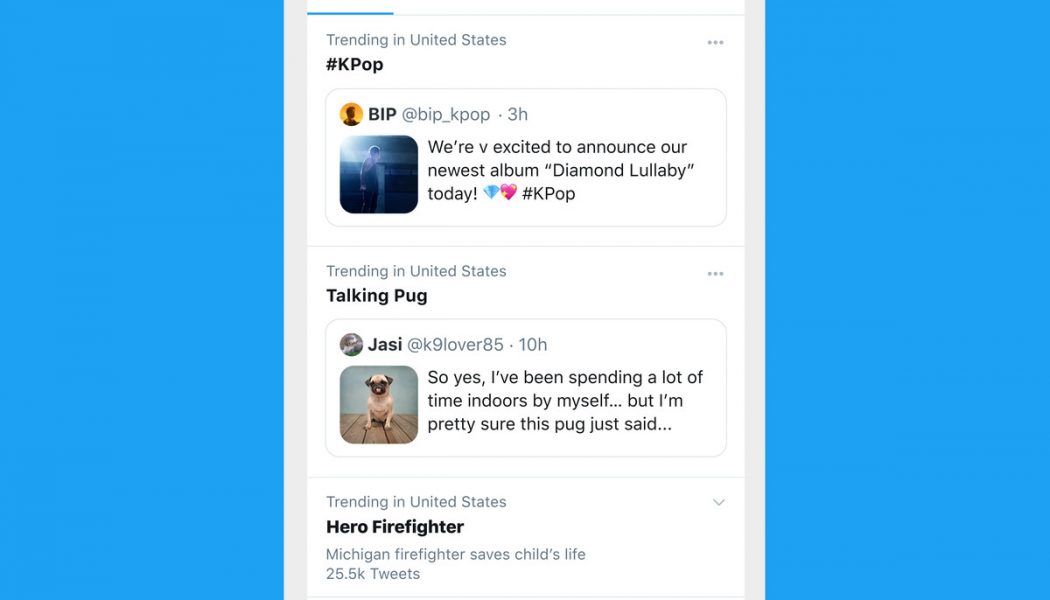Twitter will add pinned tweets and short descriptions to some of the trending topics on its service to help people understand why they’ve become popular. In a blog post announcing the news, the company said it would immediately start adding representative pinned tweets to some topics in the iOS and Android apps, and that these would be coming to Twitter on the web soon. Descriptions will roll out in the coming weeks, Twitter said.
According to Twitter, the new feature is designed in part to help the 500,000+ people who tweeted “why is this trending?” over the course of 2019. Although the trending topics section is designed to give users an overview of what people (and bots) are discussing on the service, in reality it’s often filled with tweets from people confused about why a topic is trending in the first place.
:no_upscale()/cdn.vox-cdn.com/uploads/chorus_asset/file/21846685/TrendsPinnedTweet_afterscreen_1.png.img.fullhd.medium.png)
:no_upscale()/cdn.vox-cdn.com/uploads/chorus_asset/file/21846686/TrendsTitleDesc_afterscreen_2.png.img.fullhd.medium.png)
Twitter says the pinned tweets will be decided by a combination of algorithms and human curation, and that trending descriptions will be entirely human curated. Algorithms will be used to try and stop spammy or abusive tweets from being pinned to a trending topic.
The service’s trending section has also come under frequent criticism for helping to spread misinformation. NBC News notes that in the past pro-Saudi Arabia talking points have trended thanks to help from bot accounts. Hashtags related to QAnon conspiracy theories have also appeared in the section (Twitter has since said it will ban these from being highlighted as trending topics). Getting topics to trend on Twitter can help a message spread online, making the section a battleground for malicious actors.
Twitter isn’t the only service to have had trouble with a trending section. In 2018, Facebook removed its trending topics section after facing years of criticism for its role in spreading misinformation and manipulating stories. The company has since launched a dedicated news tab, featuring stories curated by a team of human editors.
Twitter said the new representative tweets and trending topic descriptions will be available in Argentina, Australia, Brazil, Canada, Colombia, Egypt, France, India, Ireland, Japan, Mexico, New Zealand, Saudi Arabia, Spain, the United Kingdom, the United Arab Emirates, and the United States.










